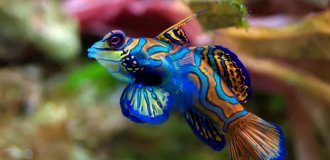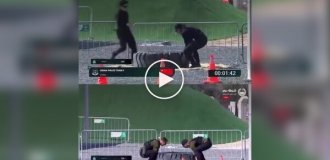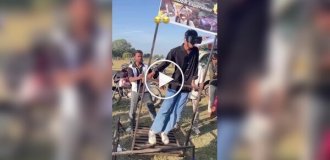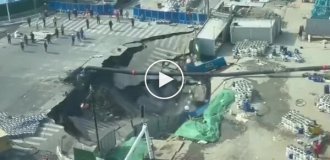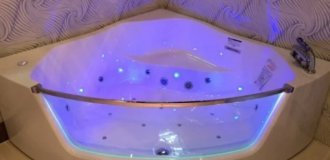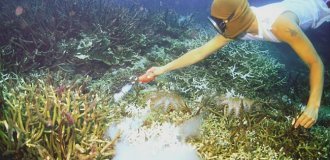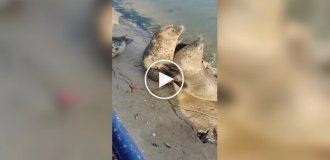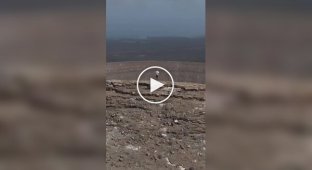Photos from Chernobyl that will give you goosebumps (16 photos)
31 years ago, in May 1986, the residents of Kyiv went out to the May Day demonstration, not yet knowing anything about the accident at the Chernobyl nuclear power plant. Today, the whole world knows about the Chernobyl disaster, and the pictures that desperate stalker photographers take in the exclusion zone frighten with ominous views of abandoned buildings, where life was once in full swing.

Fish farm
Fish in Pripyat was grown right in the bypass channel around the nuclear power plant. Catfish and rudd were found here. Now there are even more of them, and the size of the fish is simply amazing. It is not recommended to eat it, however: the amount of accumulated radiation is tens of times higher than the norm. But local squatters do not pay attention to this.

Kindergarten in the village of Kopachi
The kindergarten building is the only surviving structure in the village of Kopachi, 4 kilometers from the Chernobyl Nuclear Power Plant. The remaining buildings were demolished and their remains were buried due to the monstrous radiation contamination.

Energetik Community Center
All the windows in the Energetik Community Center in Pripyat have long been knocked out - not by vandals, but by liquidators. This was done specifically to prevent the accumulation of radioactive dust in the closed areas of the building.

Pioneer camp "Smaragd"
Children's pictures still look out from the shabby walls of the buildings in the pioneer camp, abandoned more than 30 years ago.

Crucifixion in the "Red Forest"
"Red Forest" is a pine forest that dried up soon after the explosion at the fourth reactor of the Chernobyl Nuclear Power Plant. The pine trees growing in the four-kilometer zone of the reactor absorbed too much radiation.

The Lazurny swimming pool in Pripyat
The Lazurny swimming pool in Pripyat continued to operate for about 10 years after the disaster for the liquidators and workers of the Chernobyl Nuclear Power Plant.

"Elephant's Foot"
The hellish solid formation under the base of the fourth reactor consists of a mixture of molten concrete and radioactive waste, the temperature of which after the accident increased so much that they burned through everything in their path. All the liquidators knew that they should not approach the "elephant's foot": no protective suits could withstand the level of radiation emanating from it.

Recreation Park in Pripyat
The Ferris wheel, frozen forever, has been considered one of the symbols of Chernobyl for many years.

Reactor 5
After the accident at the fourth power unit, 286 workers engaged in the construction of the fifth and sixth power units continued to work intermittently for about three more years. Only in May 1989, the work was finally stopped.

The "brain" of the fourth reactor
It was here, at the control panel of the fourth reactor, that the Chernobyl NPP employees began the experiment on April 26, 1986, which ended in a global catastrophe.

The Jupiter Plant
The Jupiter Plant in Pripyat was rumored to be producing parts for intercontinental ballistic missiles. After the accident, it operated for about 10 more years: it was engaged in the production and testing of protective and dosimetric equipment. The plant finally closed only in 1996.

Grocery store in Pripyat
This recognizable Soviet grocery store has become a ready-made set for a zombie apocalypse movie in 30 years.

April 1986
This shocking photo of the destroyed reactor has gone around the world. Already six months after the accident, by November 1986, the first concrete sarcophagus was erected over the building.

Kindergarten in Pripyat
There were 15 kindergartens in Pripyat, attended by 4980 children.

School in Pripyat
During the liquidation of the consequences of the Chernobyl disaster, the school in Pripyat was turned into a gas mask warehouse.

